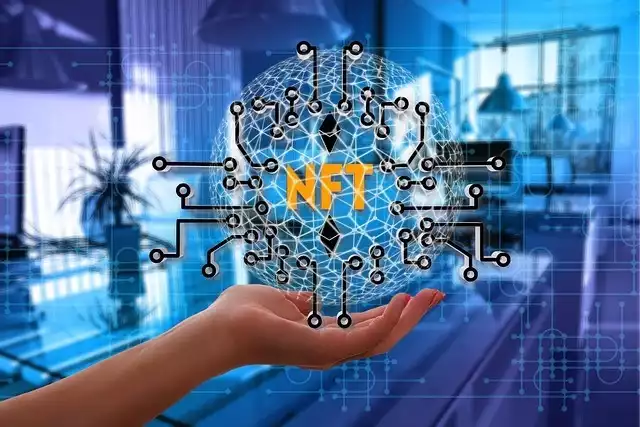What Is the NFT Marketplace?
According to some, we're in the middle of the "Wild West" phase of the NFT marketplace. The meteoric rise in non-fungible tokens(NFTs) has led to astronomical valuations, wild price swings, and huge public interest.

According to some, we're in the middle of the "Wild West" phase of the NFT marketplace. The meteoric rise in non-fungible tokens(NFTs) has led to astronomical valuations, wild price swings, and huge public interest.

According to some, we're in the middle of the "Wild West" phase of the NFT marketplace. The meteoric rise in non-fungible tokens(NFTs) has led to astronomical valuations, wild price swings, and huge public interest.
In just a few short years, we've seen scandals, outright fraud, and billions of dollars made (and lost) thanks to NFTs. Today, the news headlines scream about NFT danger. But that may quickly change as the technology evolves and finds its way.
The firm's main research and development office is based in Tel Aviv Israel. It originally specialized in Forex and indices spreadbetting and CFDs but has recently expanded in stock trading also. At the time of writing, eToro has 2.2 out of 5 star on Trust pilot. The comments suggest that the platform offers some impressive features but withdrawing money can be difficult. Having said that, some of the negative reviews appear to be rants rather than constructive criticism. This can be examples of traders losing money through their own recklessness rather than eToro's fault. You should therefore take this reviews with a pinch of salt. OANDA is a global financial services company providing advanced currency solutions to both retail and corporate clients all over the world. In this article, we are going to review this broker’s trading options, tools, platforms, spreads, commissions, security measures, and educational resources to help traders make the right choice. AvaTrade offers a wide variety of trading solutions (spread trading, CFDs, and social trading), and peace of mind with its comprehensive regulation, covering the EU, Australia, Canada and South Africa. Clients can use a variety of platforms for discretionary and automated trading.![]() Best Award Winning Brokers
Best Award Winning Brokers
 Takeaways
Takeaways
Non-fungible tokens (NFTs) digitally represent tangible and intangible assets.
What opportunities do NFTs offer?
Which NFT marketplace platforms are the most appealing?
Remember the dot-com bubble of the late 1990s and crash of 2000? This financial catastrophe paved the way for the thriving and profitable Internet we know and use today. Similarly, the current NFT chaos may soon give way to a fair and affordable online marketplace accessible to all.
To understand the NFT marketplace, you will first need to understand non-fungible tokens (NFTs). An NFT is a digital representation of a tangible or intangible asset. These assets can be all sorts of items—including assets that exist in the physical world and those that exist only online.
NFTs can digitally represent art, music, poetry, GIFs, avatars, video clips, domain names, real estate, online gaming items, access to live events, and more. This list is expected to grow as more uses for the technology develops.
Digital artwork is one of the most common types of NFTs. For example, the Bored Ape Yacht Club is an assemblage of 10,000 profile pictures of… well, bored apes. These quirky pics show disinterested cartoon apes, many sporting themed outfits. Some of them have sold for hundreds of thousands of dollars.
Even historic social media messages play a part in the NFT marketplace. Twitter cofounder Jack Dorsey sold his first tweet as an NFT. The tweet (sent on March 21, 2006) simply said "just setting up my twttr." In a 2021 bidding war between tech entrepreneurs, Dorsey sold the digital ownership of his now-famous tweet for over $2.9 million.
Creators make (i.e., "mint") NFTs using blockchain technology. They encrypt and authenticate each NFT with unique meta data and identification codes. The creator can embed lines of code called a "smart contract" that automatically executes when certain conditions are met.
For example, a creator of an art NFT can stipulate that they earn a royalty each time their NFT is resold in the marketplace. It's this built-in uniqueness that makes NFTs "non-fungible."
When something is non-fungible, this means that it is one-of-a-kind and cannot be replicated. Because each NFT has a distinct digital signature, one NFT is not equal to another. Thus, you cannot exchange one NFT for another.
This contrasts with physical money and cryptocurrencies, which are "fungible." For example, one U.S. dollar is always equal to another U.S. dollar. The same is true with cryptocurrencies. One Ethereum is always worth another Ethereum. One Bitcoin is always worth another Bitcoin.
You can exchange cryptos and physical money at equivalency. This makes them suitable as a medium for commercial transactions. NFTs, on the other hand, do not function as money. Instead, they function as certificates of ownership for a tangible or intangible asset. They exist on blockchains and can be created, bought, and sold in the NFT marketplace.
An NFT marketplace is a decentralized online platform where you can store, buy, and sell NFTs. Some marketplaces also allow creators to mint NFTs. To use a specific marketplace, you will need to sign up for an account.
Most NFT marketplaces make their money by charging users fees for creating, storing, and listing NFTs on their platform. You may need to pay a "gas" fee. This compensates the platform for the energy used to complete the transaction on the Ethereum blockchain.
For most marketplaces, you will need a crypto wallet that works with the blockchain network supporting the NFTs you want to trade. You will use your wallet to store the private keys (passwords) that allow you to access, send, receive, and spend your cryptocurrency.
Before trading on the NFT marketplace, you will need to fund your wallet with the cryptocurrency applicable to that marketplace. Once you do so, you will be able to conduct transactions on the platform.
In just the last few years, many new NFT marketplaces have opened for business. This gives the NFT creator and trader a lot of options. Some platforms cater to a specific niche, such as digital art or music. You can find marketplaces that specialize in various types of sports collectibles, virtual real estate, and gaming assets.

Here we list a few popular marketplaces:
There is no doubt the NFT marketplace is volatile and going through a period of consolidation. Critics of the tokens scoff at the high valuations. They seem to think NFTs are a fringe fad that will soon disappear. What they might be missing, however, is the difference between the collectible aspect of NFTs and the utility aspect.
Many celebrities and entrepreneurs have come out in favor of the decentralized technology fueling the newest phase of the Internet, called Web 3. Mark Cuban, Gary Vaynerchuk, Kevin O'Leary, Tom Brady, and Snoop Dogg all see the long-term value in the technology driving NFTs.
And they are not alone. Forbes reports big brands are staking huge sums to be at the forefront of the Web 3 evolution. They see it as an opportunity to use the innovative technology to build community with their customers.
Adidas, Nike, Coca-Cola, McDonald's, Louis Vuitton, and Gucci have all launched NFTs to engage customers, build brand loyalty, and open new revenue streams. Even the Royal Mint plans to launch an NFT for Britain as part of its goal to make the UK a world hub for crypto investment.
It is this potential for more direct consumer engagement that will propel companies to continue to experiment with tokens. NFT enthusiasts believe society is on the cusp of a new paradigm that makes decentralized blockchain technology universally available to all. If they are right, the need for Internet "middlemen" (such as Facebook and Google) may decline significantly as people opt to interact and conduct business through NFT smart contracts instead.

